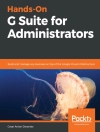The Handbook on Socially Interactive Agents provides a comprehensive overview of the research fields of Embodied Conversational Agents;Intelligent Virtual Agents;and Social Robotics . Socially Interactive Agents (SIAs);whether virtually or physically embodied;are autonomous agents that are able to perceive an environment including people or other agents;reason;decide how to interact;and express attitudes such as emotions;engagement;or empathy. They are capable of interacting with people and one another in a socially intelligent manner using multimodal communicative behaviors;with the goal to support humans in various domains.
Written by international experts in their respective fields;the book summarizes research in the many important research communities pertinent for SIAs;while discussing current challenges and future directions. The handbook provides easy access to modeling and studying SIAs for researchers and students;and aims at further bridging the gap between the research communities involved.
In two volumes;the book clearly structures the vast body of research. The first volume starts by introducing what is involved in SIAs research;in particular research methodologies and ethical implications of developing SIAs. It further examines research on appearance and behavior;focusing on multimodality. Finally;social cognition for SIAs is investigated using different theoretical models and phenomena such as theory of mind or pro-sociality. The second volume starts with perspectives on interaction;examined from different angles such as interaction in social space;group interaction;or long-term interaction. It also includes an extensive overview summarizing research and systems of human–agent platforms and of some of the major application areas of SIAs such as education;aging support;autism;and games.
Yazar hakkında
David Traum is the Director for Natural Language Research at the Institute for Creative Technologies (ICT) and Research Professor in the Department of Computer Science at the University of Southern California (USC). He leads the Natural Language Dialogue Group at ICT. Traum’s research focuses on dialogue communication between humans and artificial agents. He has engaged in theoretical, implementational, and empirical approaches to the problem, studying human–human natural language and multimodal dialogue, as well as building a number of dialogue systems to communicate with human users. Traum earned his Ph D in Computer Science at the University of Rochester in 1994.












